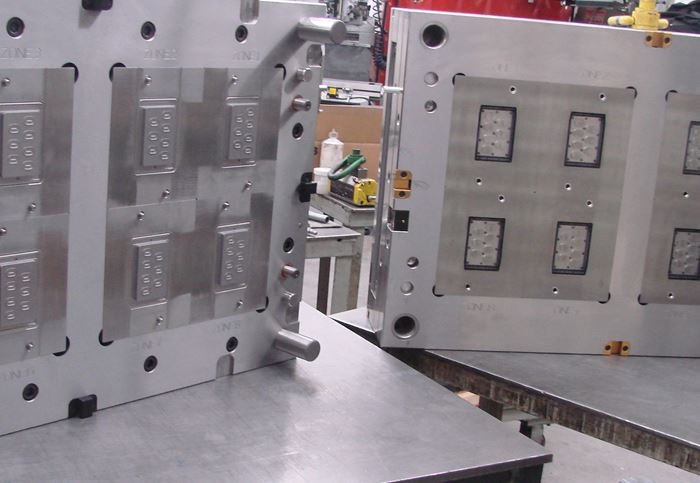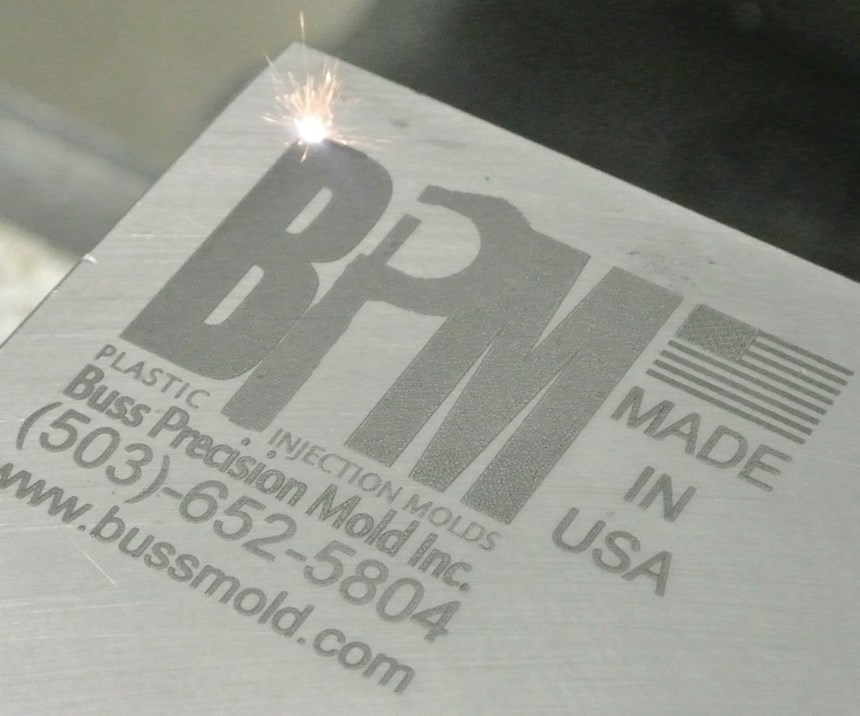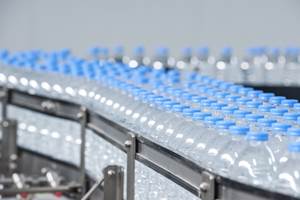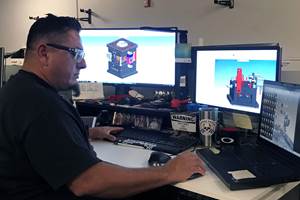Buss Precision Mold Reaps Success from Building Complex and Reshored Molds
A shift in core competencies, including re-shored molds, gives Buss Precision Mold an edge on high-precision moldmaking and laser-focused customer service.
Describe your company’s core competencies, including approaches for noted quick deliveries and the focus on more complex, tight-tolerance molds.
Jonathan Buss, president: BPM’s core competencies include building molds with 16 cavities or under with stringent requirements of finishes and tolerances. We excel at customer service/responsiveness and quality, including supporting immediate repairs and stocking spare components, as well as providing value-added features like waterline ID tags so our customers can set up molds faster and more accurately. We make a point of partnering with customers for early involvement so a robust part and mold design ensues, and we provide mold simulations as needed.
We took a hard look at how our business was structured a few years ago and made the decision to let go of work that wasn’t profitable anymore. As a result, our focus has changed somewhat from quick deliveries to the previously noted attributes, and we have bigger and better customers today. We are building some molds, which are 36 by 36 inches square, with more than a thousand features that all must be within +/-0.0005-inch part tolerance. We also build some very small molds with features of 0.013-inch diameter by 2.000 inches long that have a +/-0.0002-inch part tolerance. So, our actual machined mold tolerances are typically 25 percent of molded part tolerances.
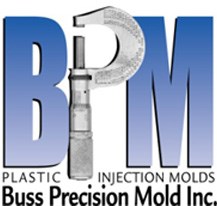
Buss Precision Mold Inc.
- Founded in 1988 by father and son, Earl and Jonathan Buss. Employs 14 (and three dogs).
- Designs and builds single and multiple cavity molds ranging from small unit dies, such as 5 by 8 inches master unit dies (MUDs) to self-contained molds up to 36 by 48 inches, weighing several tons.
- Industries served include consumer and industrial products, agriculture, medical, transportation and military applications.
- ITAR compliant for government contracts.
You have been experiencing a recent surge in re-shored molds. What are the reasons for reshoring, and how is Buss Precision addressing any issues or challenges to serve those customers?
Buss: Six of the molds that we have been asked to take on are for the electronic gaming industry. The customer is experiencing intellectual property (IP) theft and it has been rampant, so they are bringing both tooling and production back to the United States.
We have another customer who we built some tools for, but they decided to postpone production and mothball the molds after they were completed. However, there are knockoffs on the market today, even though the customer never introduced the product into the marketplace themselves. So that shows you that it was an inside job, as the company has offshore production. Too often, on a big manufacturer's scale when they're going offshore and have their own facilities in China, there are so many leaky holes, and sensitive information can get out that is going to get knocked off. We have several customers with whom we have NDAs, and some of it is a little ironic because designs are still leaking out. A shop like ours, we're not going to be giving any information to anybody else because we get the work from it, so we protect data practically with our lives. If we were to leak or disclose anything, we would be shooting ourselves in the foot. We are probably keeping information confidential better than most would be, even within their own organization. Our customers have had experiences with offshore mold builders that don't necessarily have the same ethics, or they don’t realize what is at stake. We know what is at stake because our bread and butter depend on keeping the work in our country and for Buss Precision Mold to build our customers’ molds.
What precautions have you taken to boost your company’s cybersecurity?
Buss: In terms of cybersecurity in our plant, we've had a firewall for years, but recently, to be more proactive, we have upgraded it, and we began providing some training during company meetings to make sure our people are schooled on what not to do. We all know about the foreign prince that just died and has $10 million to gift someone if his servant could just access someone’s bank account, but the bigger issue for our customers is protecting their intellectual property, plus taking delivery of a mold that's engineered and built properly so that it works. On our end, it is due to our concern over spoofing or ransomware issues that could happen that we remain diligent about cybersecurity.
We do some ITAR work, too, and that's one of those things where you’ve got to know how the international treaty of arms restrictions plays into the process. Some of the work we do comes under restrictions for access to only U.S. citizens, and they are the only people in any company who are allowed access to the design data. BPM is typically only seeing components and not complete assemblies, but it still falls under the security umbrella we must take precautions on.
What is the most recent equipment investment made and what will be the next technological breakthrough in moldmaking for Buss Precision Mold?
Buss: We have recently installed another Makino three-axis vertical machining center; this model is the F5 and is built for precision hard milling. It should supplement our Makino V56, as well as other high-speed machines. In addition, we have installed an NGRV 50-watt fiber laser engraver from Alliance Laser Sales. We use it primarily for component ID markings but have also used it for cavity ID and logo artwork directly in the cavities. Some of the molds we build can have over a thousand components, and customers require everything except the fasteners to have a unique identification. Previously, we were CNC milling or manually pantographing in the nomenclature, which does a nice job but can take a lot longer than necessary. After the second project of 1,500 or so pieces, we thought there had to be a better way, so that is when we purchased the laser engraver. The fiber laser can put an actual depth to the engraving, whereas some of the other laser engravers only mark the surface and the marks can be obscured by normal aging or wear of the mold components.
Related Content
Making Quick and Easy Kaizen Work for Your Shop
Within each person is unlimited creative potential to improve shop operations.
Read MoreWhat is Driving Mold Lifecycle Management Digitalization?
OEMs are looking to partner with suppliers to share and track data across the supply chain for advanced intervention and process management.
Read MoreTop 10 Topics to Cover During an ISO 9001 Manufacturing Audit
Take a look at this practical hands-on approach to conducting a quality audit.
Read MoreMold Design Review: The Complete Checklist
Gerardo (Jerry) Miranda III, former global tooling manager for Oakley sunglasses, reshares his complete mold design checklist, an essential part of the product time and cost-to-market process.
Read MoreRead Next
Are You a Moldmaker Considering 3D Printing? Consider the 3D Printing Workshop at NPE2024
Presentations will cover 3D printing for mold tooling, material innovation, product development, bridge production and full-scale, high-volume additive manufacturing.
Read MoreHow to Use Strategic Planning Tools, Data to Manage the Human Side of Business
Q&A with Marion Wells, MMT EAB member and founder of Human Asset Management.
Read MoreHow to Use Continuing Education to Remain Competitive in Moldmaking
Continued training helps moldmakers make tooling decisions and properly use the latest cutting tool to efficiently machine high-quality molds.
Read More
